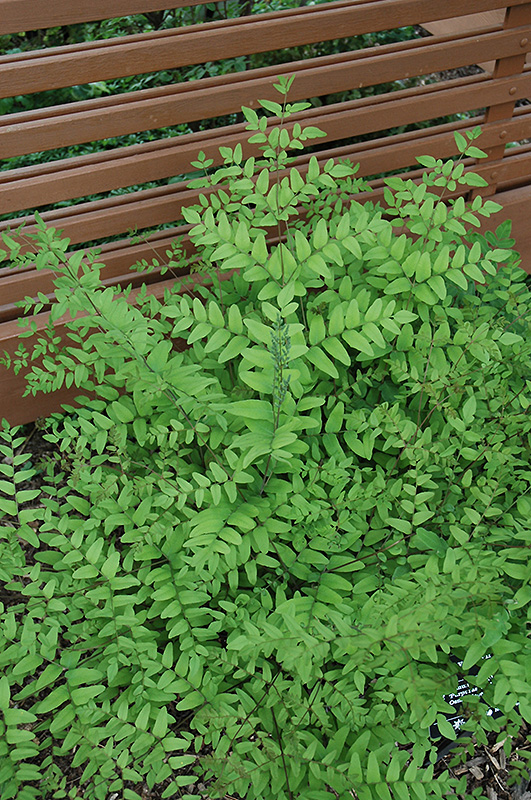>> Home
Purpleleaf Royal Fern
Osmunda regalis 'Purpurascens'
Height: 5 feet
Spacing: 24 inches
Sunlight:
![]()
![]()
![]()
Hardiness Zone: 3a
Description:
A very nice form with deep purple fiddleheads that mature into huge majestic fronds; striking gold color awaits fall; adds incredible depth to gardens or woodland settings; tolerates more light if soil kept moist
Ornamental Features
Purpleleaf Royal Fern features bold spikes of brown flowers rising above the foliage in mid summer. Its attractive enormous oval bipinnately compound leaves emerge deep purple in spring, turning green in color with distinctive burgundy veins. As an added bonus, the foliage turns a gorgeous gold in the fall.
Landscape Attributes
Purpleleaf Royal Fern is an herbaceous fern with a shapely form and gracefully arching fronds. Its relatively coarse texture can be used to stand it apart from other garden plants with finer foliage.
This plant will require occasional maintenance and upkeep, and is best cleaned up in early spring before it resumes active growth for the season. Gardeners should be aware of the following characteristic(s) that may warrant special consideration;
- Spreading
Purpleleaf Royal Fern is recommended for the following landscape applications;
- Accent
- Groundcover
- Naturalizing And Woodland Gardens
- Bog Gardens
Planting & Growing
Purpleleaf Royal Fern will grow to be about 4 feet tall at maturity, with a spread of 3 feet. When grown in masses or used as a bedding plant, individual plants should be spaced approximately 24 inches apart. It grows at a fast rate, and under ideal conditions can be expected to live for approximately 15 years. As an herbaceous perennial, this plant will usually die back to the crown each winter, and will regrow from the base each spring. Be careful not to disturb the crown in late winter when it may not be readily seen!
This plant performs well in both full sun and full shade. It prefers to grow in moist to wet soil, and will even tolerate some standing water. It is not particular as to soil type or pH. It is somewhat tolerant of urban pollution. Consider applying a thick mulch around the root zone over the growing season to conserve soil moisture. This is a selected variety of a species not originally from North America. It can be propagated by division; however, as a cultivated variety, be aware that it may be subject to certain restrictions or prohibitions on propagation.
